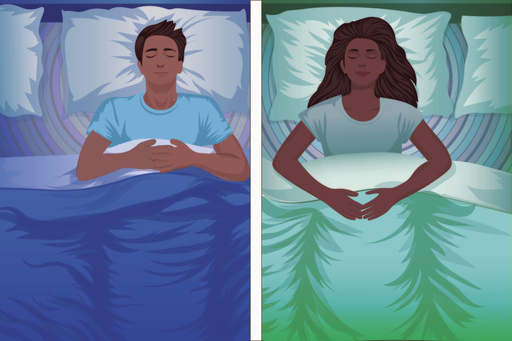Michael Solender and his wife have been married for 42 years, initially sharing a bed but eventually opting for separate rooms due to his chronic snoring and sleep apnea diagnosis requiring a CPAP machine. Despite resolving the snoring issue, they continue to sleep apart due to differing temperature preferences.
Various factors such as snoring, temperature differences, cover stealing, and differing sleep habits often lead couples to sleep separately. A study by the American Academy of Sleep Medicine revealed that over a third of Americans occasionally or routinely sleep in different rooms to accommodate their partner, with men more likely to do so than women.
Dr. Seema Khosla, a pulmonologist, emphasizes the importance of adequate sleep for maintaining healthy relationships. Poor sleep has been linked to increased conflict among partners. Khosla highlights that separate sleeping arrangements are more common than believed and stresses the need for open communication between partners.
Sleep apnea, a common cause of heavy snoring, often necessitates separate sleeping spaces. Khosla encourages couples to discuss their sleep preferences openly, ensuring that intimacy is not sacrificed. She notes some initial reluctance among patients to consider sleeping apart.
Tracey Daniels and her husband have been sleeping separately due to his snoring and her light sleep, a situation that became more prominent after her breast cancer diagnosis. Dr. Phyllis Zee, a sleep specialist, supports discussing sleep compatibility before marriage and asserts that sleep issues become more prevalent in middle age.
While separate sleep spaces are increasingly accepted, Zee mentions technological advancements like white noise machines and cooling bedding that can facilitate shared sleeping arrangements. She advises seeking professional help before deciding on separate sleep setups to address potential underlying sleep disorders.


